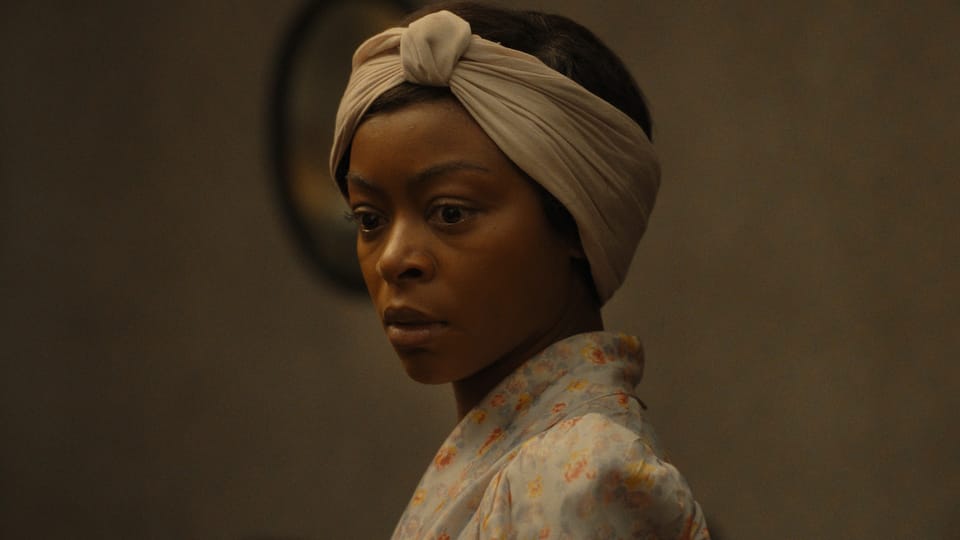In ‘The Piano Lesson’ a prayer chimes through the nightmare

DYLAN FREEMAN-GRIST
___
The stage-to-screen adaptation has always drawn me in. A good play by nature is a paradox, it delves into the deepest parts of our souls without all the subtle signatures of humanity. Think about the unspeaking intimacy that binds old friends, or a cutting eye to convey raised defenses. We can picture a longing stare across a crowded room to mark the first inklings of love, or a stubborn tear drop, not-quite-fallen, to mark the final phase of sorrow. Great actors may carry these tools in their arsenal but they can only do so much on a stage where the artistry is in projecting the quiet loud so it can be felt by those in the balcony.
To adapt a great play to screen then always presents a remarkable opportunity to dig deeper into the roots of the story. When drawn closer to the performance we can better understand how it came to stand so tall. It is the art of learning to sit with characters we know primarily from their actions and reactions alone. In The Piano Lesson first-time director Malcolm Washington guides us through this very exercise as he wrestles with August Wilson’s original stage play. Set in post depression-era Pittsburgh, it is a story of a free Black family reckoning with their collected living memory of slavery amid a family conflict. Up to the task of breathing life into Washington's reimagination is his principle cast, a few of whom have carried their roles over from their time performing in the 2022 Broadway reprisal of the play.
Among them is John David Washington who sparks each time he is on screen as Boy Willie, an enterprising farmer hell bent on selling his family's prized, heirloom piano. Its value is needed to assemble the final portion of the sum he intends to use to purchase the land where his family was once enslaved. Samuel L. Jackson too reprises his role of his uncle Doaker and while there is no actor on the planet more capable of stealing a scene - or an entire movie - he has rebuilt his stage character as a calm and mediating force over the tornado brewing between Willie and his sister Bernice - played for the first time by Danielle Deadwyler. Willie's plans run into a concrete dam when they wash through Pittsburg and arrive at Bernice’s doorstep. She is the family’s keeper of the piano, which rests in the home she shares with Doaker. The blood seeped into its ivory - including that of her and Willie’s father who was killed as a consequence of its acquisition - haunt her daily life while solidifying in her an unmoving resolve that it shall not be disturbed.

Of course, a story jumping from stage to screenplay will also carry limitations alongside its opportunities. The Piano Lesson is no exception from the rule that a strong stage production often resists movement. When each scene change requires the design and rapid alteration of a stage set its writing or production will limit the locations where the plot can travel. This is why good plays are remembered for their dialogue, not their scenery, while great plays are often built around conversations with extraordinary stakes.
I think this is why the best film adaptations embrace the claustrophobia of staying in one place even if one would rather flee. Their characters remain constrained in their locations and that very constraint amplifies the stakes that underpin the conflict and dialogue. 12 Angry Men (1957) suffocates its ensemble in a closed room as they debate sentencing a potentially innocent man to death, One Night in Miami (2020)’s best moments come from the encroaching walls of a hotel room as four Black civil rights icons press through a heated debate on how to carry on leading a generation through the 1960s. Ma Rainey’s Black Bottom (2020) - another film adaptation of Wilson’s work - could not so expertly analyze the staggering consequences of Black brilliance, talent, and ambition in a racist society without the uncompromising enclosure of its recording studio. We can point now to The Piano Lesson as another project that has successfully built upon this tradition.
I imagine Bernice’s house on stage is expansive in the way stage sets must be. On film however it’s a pressure cooker that allows the audience to better understand decade-long tensions brewing and finally bubbling over. Amid its walls the family is forced to co-exist and finally confront one another as their past and futures collide. Business and life plans, happy and horrifying memories, conflicting philosophies on how best to move forward while the specter of trauma haunts every corner. Washington stands upon Wilson’s words and successfully brings them all to bear, extending this ghost story yet further through the ages where its lessons remain as painfully urgent as they were when first committed to paper.
___
The Piano Lesson is currently out in limited release and is playing at the TIFF Lightbox.
The Town is a comprehensive guide to film in Toronto. You can subscribe for regular updates here.
